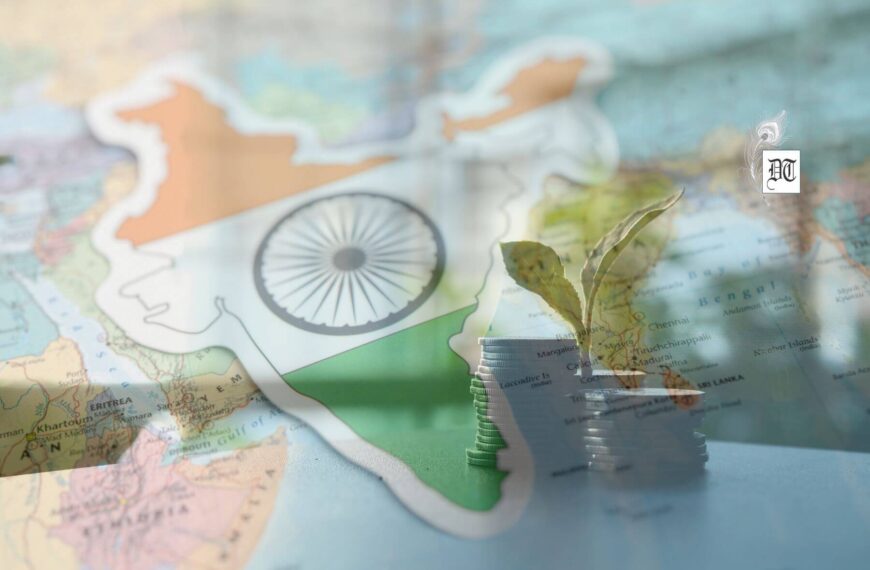That China has been assiduously wooing Kathmandu has been all too clear but that the people of Nepal would turn away from India through the democratic process was not anticipated. Clearly, Indian foreign policy has been outsmarted by China in Nepal. Economically, less developed and less industrialised Nepal is dependent on India for economic interaction. A large number of Nepalese are dependent on the Indian economy. Navodita, our Associate Editor, analyses and critiques the Indo-Nepal relations, in the weekly column. A Different Truths exclusive.
This time news from across the border in Nepal where the country’s Left alliance has won a majority of seats in the recent parliamentary elections and is all set to form the new government soon. If the new government is formed with K.P. Oli at the helm it may spell disconcerting relations with the country as they have been last time around when he was prime minister. That China has been assiduously wooing Kathmandu has been all too clear but that the people of Nepal would turn away from India through the democratic process was not anticipated. Clearly, Indian foreign policy has been outsmarted by China in Nepal.
Popular and cultural ties between India and Nepal have consistently been close and have reflected the historical, geographical, cultural and linguistic links between the two nations. The geo-strategic position of Nepal has attracted the attention of not only India and China but the superpowers as well. British India regarded Nepal as a buffer between India and Russia and independent India also considered it as a principal buffer to India, defending its northern frontiers. India and Nepal bear a complex nature of the relationship, which is not oriented of political factors alone but covers the entire gamut of socio-cultural and economic issues. The need, therefore, arises, to locate areas of mutually beneficial cooperation and spheres of strains and conflicts between the two nations so that long-term cooperation and partnership develops between these two countries.
India’s attitude towards Nepal is determined by its economic interests in Nepal such as utilisation of water resources, promotion of trade, promotion of capital investment, development of joint ventures, etc. Nepal’s excessive economic dependence on India has its impact on India-Nepal relations. Since Nepal is a landlocked country, India provides the outlet for its overseas trade. India has given twenty transit points to Nepal apart from port facilities at Kolkata, Kandla, and Mumbai. India has been Nepal’s single largest trading partner. The issues of transit and trade have determined relations between the two countries. India has been intermixing the two issues, while Nepal has separated these issues since 1978. India sees forward to promote better trade relations with Nepal as it provides a market for Indian products. India on its part has also liberalised its trade regimes towards Nepal. River water development is yet another major field in which both countries can enter into cooperation. Both the countries have a tacit understanding in this regard. Over the years water issues have been politicised much to the detriment of both the nations.
this regard. Over the years water issues have been politicised much to the detriment of both the nations.
Economically, less developed and less industrialised Nepal is dependent on India for economic interaction. A large number of Nepalese are dependent on the Indian economy. After independence, India saw its strategic interests in Nepal and thus preferred an open border with it. Problem and issue of border demarcation have been a problem between the two countries since the time of the Britishers. The most serious and adverse impact of the open and uncontrolled border has been in the form of growing anti-social and lawless activities. The unrestricted border has been responsible for all sorts of criminals, anti-social and illegal activities such as robbery, theft, murder, smuggling of goods to evade custom duties, narcotics drug trafficking, arms smuggling, smuggling of archaeological art, poaching, etc. the open border facilitates illegal migration between the two countries and no quota system is there to determine the number of migrants crossing the border. The consequence of wide-ranging interaction with the people across the border is seen in the Tarai region. It has considerable bearing on population growth in the Tarai as well as the socio-religious character of the region.
Other than economic relations, border security and river water sharing as the main issue between Nepal and India, in 1992 prime minister P.V. Narasimha Rao visited Nepal where he pointed out that India would help in industrialisation of Nepal and jointly they would work on harnessing river waters. Since then India formally liberalised its econ omy towards Nepal. However, the communist resurgence and the gradual rise of the Maoist forces in Nepal’s domestic politics has been a point of major concern for India. Communist viewed India as a follower of imperialist forces and more sympathetic towards Nepali Congress. Communists were also critical of the revision of 1950 Treaty, sharing of river water and Indian migrants to Nepal. The conventional approach to forge Indo-Nepal friendship would not change the situation.
omy towards Nepal. However, the communist resurgence and the gradual rise of the Maoist forces in Nepal’s domestic politics has been a point of major concern for India. Communist viewed India as a follower of imperialist forces and more sympathetic towards Nepali Congress. Communists were also critical of the revision of 1950 Treaty, sharing of river water and Indian migrants to Nepal. The conventional approach to forge Indo-Nepal friendship would not change the situation.
The short-term goals of India can be said to be a stable government in Kathmandu, which allow cooperation in all areas and bring peace. There remains a strong anti-India sentiment among the Nepalis. The media in both the countries could perhaps play a positive role in promoting better relations between citizens of both the countries. In the wake of an emerging Left, Indo-Nepal relations need to be looked into with a different perspective today.
©Navodita Pande
Photos from the Internet
#IndianForeignPolicy #IndianChinaNepal #RelationshipWithNepal #Indianpolicy #IndoNepalRelationships #GlobalGanter #DifferentTruths





 By
By

 By
By